- The client
- Social media strategy for professional athletes
- Personal branding for athletes: why it’s so important
- Collaboration or sponsorship?
- The most popular social media platforms for athletes and personal branding
- How professional athletes use social media promotions to reinforce their personal brand
- Testimonial
The client
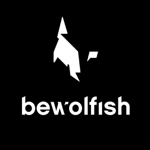
Bewolfish is a sports marketing agency based in Girona, Spain. Their aim is to optimize their clients’ performance, boost their personal brand, and monetize their careers. Bewolish works with professional athletes, as well as those who aspire to become professional. The agency complements their clients’ training, supports their social media strategy and press communications. They also look for sponsorship opportunities and brand collaborations.
Personal branding is a vital part of professional sports performers’ careers. It’s how you’re viewed in the public eye and how your fans perceive you. Personal branding is also an important aspect for potential sponsors who are keen to work with professional athletes. Luckily, we live in the era of social media; it has never been easier to connect with thousands of fans from all around the world. And a consistent social media strategy can help monetize athletes’ careers, as well as promote their sponsors. Bewolfish lets us in on how social media presence and promotions can help athletes create a strong personal brand.
Social media strategy for professional athletes
According to Carlota Molas, a Communications Director at Bewolfish, not all athletes are fully aware of the importance of a strong and well-established personal brand. “In order to have a solid personal brand, it’s important to know where you are as an athlete, where you want to be, who you are on a personal level, and what makes you stand out from the crowd”, she explains.
Personal values are one of the most important aspects of an athlete’s personal brand. Social media helps to not only promote the values but also differentiate the athlete from the crowd. Sacrifice and constant work are common for all professionals. That’s why it’s so important to put emphasis on the aspects that diversify one athlete from another. Carlota Molas reveals that social media strategies are often based on the aspects that make their clients unique and desirable for audiences and brands. She emphasizes the importance of a strong strategy, regular analysis, and consistency when it comes to social media communications. “It’s crucial to be authentic”, she adds.
Personal branding for athletes: why it’s so important
Social media has become a very important communications channel for brands. It allows them to not only reach their target audience but also boost brand awareness and sales. Popular athletes with a strong social media presence are what brands often seek; with their help, can increase brand visibility, drive more sales, or simply reach a new segment of social media users.
Brands constantly look for ways to promote their products and reach new audiences. Fortunately for them, athletes are a great product promotion medium. Molas explains that brands want to be linked to successful athletes, in an attempt to gain credibility among their target audience. She also highlights that the best sponsorship agreements are the ones where the brand and athlete share not only the same values but also the same objectives.
When it comes to sponsorships, the benefit is mutual as sportsmen with good social media visibility look for new income opportunities. In return, they provide companies with the possibility of reaching thousands – and sometimes even millions – of new potential customers through their established social media channels.
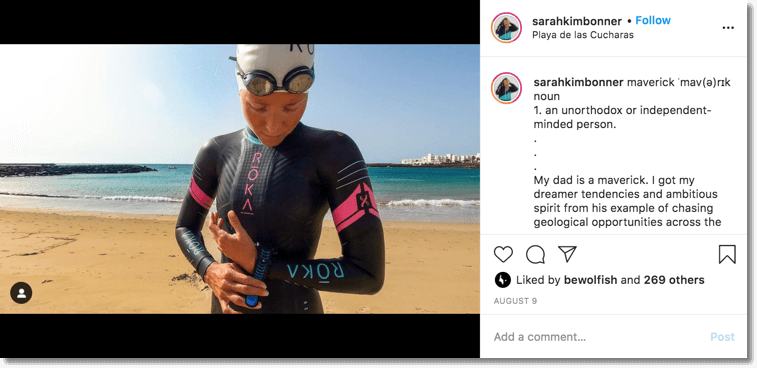
Athletes with a consistent social media presence, engaged audience, and high-quality content attract brands’ interest – that’s how mutually beneficial relationships get formed.
The most popular actions that sponsors expect from their athletes are the following:
- Logo exposure – this is easily achievable by placing the logo on helmets, suits, equipment, merchandise, etc.
- Social media content – posts promoting the brand and their products, presented as their essential items.
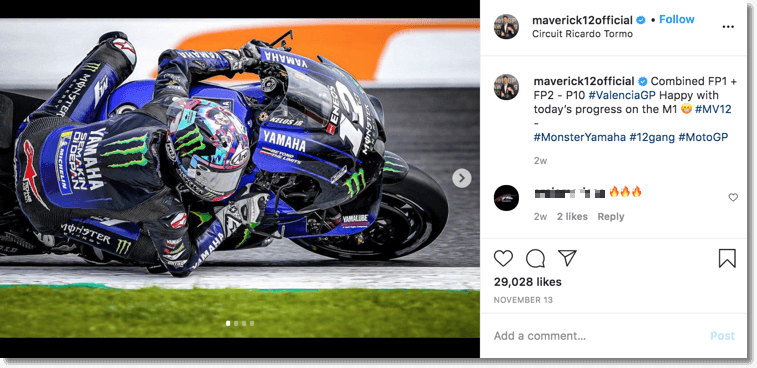
High-quality content is not only important for collaborating brands but also for the athletes themselves. “One of the most important things is to understand there are a lot of people on social media, and finding an athlete with thousands of followers isn’t difficult. “To stand out from the crowd you have to be better than the others, or at least offer better content”, says Molas. She explains that social media contests are popular with athletes, brands, and audiences because they generate high-quality engagement and reinforce visibility for the sponsored athlete and the promoted product and brand.
Collaboration or sponsorship?
The difference between collaboration and sponsorship is very easy to understand; sponsorships are long-term contracts that connect athletes to the brand for a longer period of time. Collaborations are short-term – daily, weekly, monthly – relationships.
The Bewolfish agency has noticed a rise in short-term collaborations during and after the coronavirus lockdowns. Molas emphasizes the importance of promoting only the products that athletes genuinely like and use.
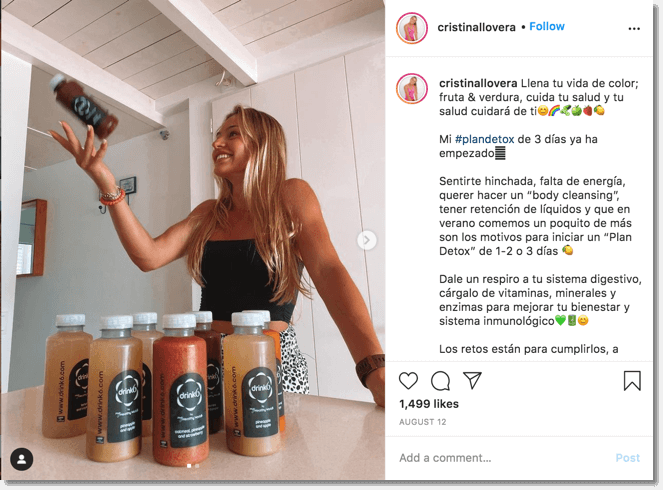
“Athletes need collaborations because we all know they have a lot of expenses, like for example training. (…) It’s important that athletes promote only the products they believe in. Otherwise, they’ll lose the interest and trust of their social media community, which will result in losing potential collaborators or sponsors.”, explains Molas.
The most popular social media platforms for athletes and personal branding
According to Bewolfish, Instagram is the most popular social media platform for professional sports performers, while YouTube also plays an important role. Younger athletes have no presence on Facebook but they’re likely to engage users on TikTok, even though many of their sponsors are not active on that platform. Bewolfish also emphasizes the importance of sports platforms like Strava.
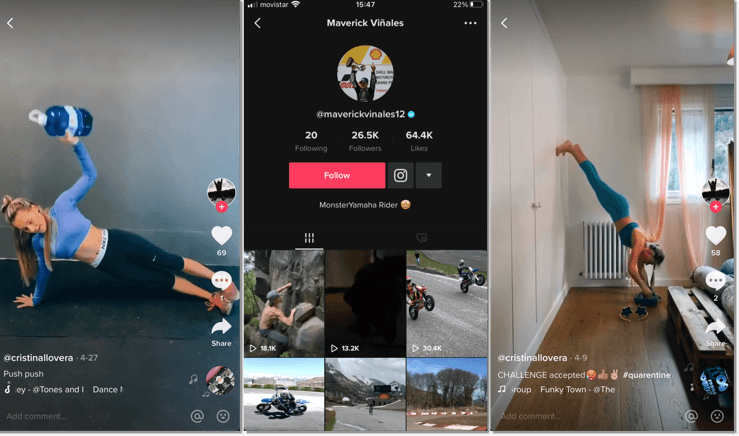
Molas suggests that being present on all social media platforms is not always the best solution; “It’s not recommended to be on all social media channels if you don’t have time to manage all the accounts. It’s better to have fewer accounts but with a better strategy and image”, she adds.
How professional athletes use social media promotions to reinforce their personal brand
Social media promotions are a valuable resource for sponsored athletes and sponsoring brands. They reinforce product promotion, enhance engagement and therefore visibility and also outreach new potential customers. “Social media giveaways are the type of content that is useful for the followers”, explains Molas.” It’s essential to run reliable and transparent promotions so that the audience and the sponsor are satisfied with the winner selection process”.

Testimonial
Bewolfish organizes all their social media contests through Easypromos. We know that if we use Easypromos we won’t have any problems. Apart from the Certificate of Validity that the platform generates, the tool allows you to be very creative, as Easypromos applications generate entertainment for the audience, engagement for the brand, and great visibility for the sponsors.
Carlota Molas
-Chief Marketing at Bewolfish-